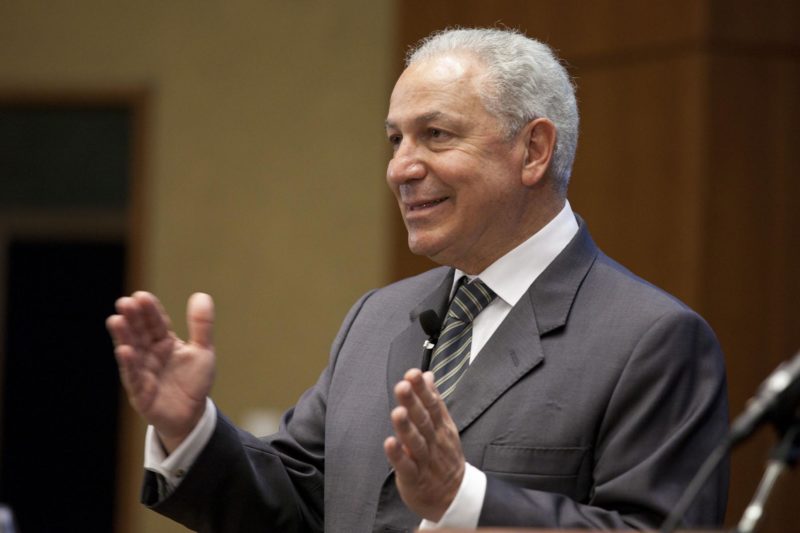The 22nd Session of the Conference of the Parties (COP 22), the 12th Session of the Conference of the Parties serving as the meeting of the Parties to the Kyoto Protocol (CMP 12), and the 1st Session of the Conference of the Parties serving as the meeting of the Parties to the Paris Agreement (CMA 1) were held in Marrakech, Morocco from November 7 to 18, 2016.

The decisions adopted and initiative launched during COP22/CMP12/CMA1 reinforced the spirit of Parties, united in accelerated and irreversible global climate action.
“COP22 was a first of its kind, with 35 negotiated outcomes, a global climate action agenda, numerous initiatives launched by members of civil society and the Marrakech Action Proclamation that demonstrated political will at the highest levels to consolidate around the Paris Agreement and its implementation,” stated Ambassador Aziz Mekouar, COP22 Head of Multilateral Negotiations.
The outcomes addressed several climate change issues such as finance, adaptation, capacity building and transparency and included the following results:
- Inclusive and transparent consultations with Parties during the Pre-COP and COP22 achieved the adoption by Parties of the Marrakech Action Proclamation For Our Climate And Sustainable Development.
- The first session of the Conference of the Parties serving as the meeting of the Parties to the Paris Agreement (CMA 1) was held in Marrakech following the agreement’s rapid early entry into force.
- The launch of the AAA initiative for the Adaptation of African Agriculture
- The Marrakech Partnership for Global Climate Action was announced covering the period 2017 to 2020 and the Pathway to 2050 initiative designed to bring together a broad coalition of national and subnational governmental agencies, organisations and businesses who have a critical role to play in the transition to a net zero-GHG, climate-resilient and sustainable development path.
- The NDC Partnership and Navigator were launched to assist countries with identifying capacity building and financing opportunities as they seek to implement their nationally determined contributions
- The Marrakech Global Partnership for Renewable Energy and Energy Efficiency was launched to consolidate energy sector outcomes from COP21 and COP22 and accelerate the transition to global clean energy systems through information sharing, scaling up of finance, transparency and identifying key policy drivers.
- The establishment of the Network of International Climate Change Centers of Excellence and Think Tanks for Capacity Building (INCCCETT 4CB) was announced to promote capacity building efforts as part of south-south and north-south cooperation.
- The Climate Vulnerable Forum (CVF) committed to take actions to limit global warming to 1.5 degrees Celsius above pre-industrial levels and lead a transformation towards 100% renewable energy
- Pre-2020 action was strengthened by Parties insisting on the ratification and application of the Doha Amendment to the Kyoto Protocol, which Australia ratified during COP22. The Moroccan Presidency (COP22) will lead inclusive consultations in 2017 with Fiji (COP23 President) to identify modalities for the 2018 Facilitative Dialogue.
- Adoption of new axes of Nairobi work plan on impacts, vulnerability and adaptation to climate change to be undertaken by subsidiary bodies in 2017.
- Adoption of a five-year work plan for the “Warsaw International Mechanism for Loss and Damage associated with Climate Change Impacts”. Creation of a team in charge of formulating recommendations for an integrated approach to prevent and reduce human displacement was also approved by the Executive Committee.
- Climate finance roadmap of $100 billion by 2020.
- Decision by the Green Climate Fund to allocate $3 million to least advanced countries to formulate National Adaptation Plans.
- Key progress was made regarding the Adaptation Fund under the Kyoto Protocol as an implementation instrument for the Paris Agreement. Several countries announced contributions to it, bringing the available funds to more than $80 billion.
- The Paris Committee on Capacity Building mandate was validated and the committee was established to include Morocco. The work plan of the Capacity Building Mechanism for 2016-2020 was also launched.
- $50 million of financing was announced for the Capacity-building Initiative for Transparency (CBIT) to strengthen the institutional and technical capacities of developing countries to meet the enhanced transparency requirements in the Paris Agreement.
- In terms of gender and climate, the Lima 2nd biennial work program was adopted. For indigenous peoples and local communities, work was launched to operationalise an information exchange and dialogue platform.
- The Mohammed VI International Award for the Climate and Sustainable Development ($1 million)
“The progress made on negotiations in Marrakech reflects the Moroccan Presidency’s active, transparent and inclusive engagement with Parties and the global communities irreversible commitment to accelerating forward momentum in the fight against climate change,” stated Mekouar.
